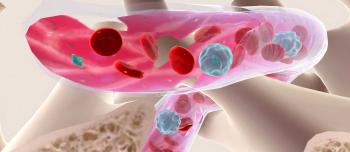In January 2011, CSL Behring awarded nearly $100,000 in advocacy grants to six patient organizations through the company’s Local Empowerment for Advocacy Development (LEAD) program. LEAD grants support the grassroots advocacy efforts of organizations committed to helping people who use plasma-derived or recombinant therapies to manage rare and serious diseases.
The latest round of CSL Behring LEAD grants went to the following organizations:
The Hemophilia Foundation of Maryland (HFM), Parkville
The grant will support HFM’s legislative initiatives for Maryland Bleeding Disorders Standards of Care. The foundation is looking to build upon its success from the previous legislative session when the bill was first introduced.
The Bleeding Disorders Foundation of Washington (BDFW), Edmonds
LEAD grant funds to BDFW will be used to support its state advocacy day in Olympia, WA, and to increase participation from the eastern part of the state.
The Immune Deficiency Foundation (IDF), Towson, MD
IDF will use its grant to support Capitol Hill Day during which individuals with primary immune deficiencies and their families travel to Washington, DC, to meet with their legislators and discuss issues affecting this community. IDF will also jointly conduct a Raise Your Voice! program with CSL Behring. Raise Your Voice! Is a part of the CSL Behring LEAD program and helps teenagers become active advocates.
The New England Hemophilia Association (NEHA), Dedham, MA
NEHA will use the grant to expand its consumer network and to train volunteers. In addition, the LEAD grant will provide staffing resources to help drive NEHA’s advocacy priorities through legislation and coalition building.
The Midwest Hemophilia Association (MHA), Kansas City, MO
MHA will use its grant to bolster legislative efforts in support of passage of Standards of Care for People with Bleeding Disorders in Missouri. In addition, it will start grassroots advocacy in Kansas and help educate the public about women with bleeding disorders.
The Hereditary Angioedema Association (HAEA), Honolulu, HI
The HAEA will use its grant funds to support the establishment of a public policy program. Already, the HAEA has held its first federal advocacy day. Select volunteers traveled to Washington to inform their legislators about hereditary angioedema and the need for increased research into this potentially life-threatening condition.
Source: CSL Behring news release dated January 20, 2011





